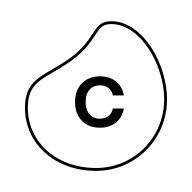
How Uniper's Center of Excellence Drives Process Mining Across the Enterprise
For Uniper, one of Europe's largest energy suppliers,ensuring the highest safety standards in their power plants is a top priority. That’s why already back in 2018, their Internal Audit department spearheaded a pilot to uncover and fix inefficiencies in their plant maintenance process with Celonis.
A handful of employees analyzed the entire maintenance process of a power plant using Celonis’ Process Mining technology, uncovering opportunities for improving safety and lowering costs. This lighthouse project gave Uniper a first taste of the possibilities and opportunities offered by the global leader in Execution Management.
Today, three years later, Uniper has its own Center of Excellence (CoE), which serves as the main driver for the enterprise-wide deployment of Process Mining. Robert Daamen, CoE Lead Process Mining, has accompanied the implementation of Celonis from day one and is convinced: “Process Mining is not just another tool, it is the decisive tool that can meet our needs for transparency and optimized processes within the company.” Uniper’s CoE demonstrates how Process Mining can be made accessible at scale, and how every department stands to benefit from its use.
Initial Process Mining Project Is a True Beacon
With its initial Process Mining project, the power provider was able to add a digital safety net to maintenance. A central process KPI dashboard now provides information on legal deadlines, missing and pending work permits, utilization, and project progress.
But that’s not all: Since Uniper has implemented the Celonis EMS in all power plants across Germany, individual sites can compare process execution parameters, learn from each other, and share insights on improvement opportunities.
Uniper was also able to realize financial value: Because the company can organize deadlines and work orders more efficiently with its external suppliers, Uniper’s planning accuracy has significantly improved. As a result, idle times were virtually eliminated. This alone has unlocked significant savings. As a next step, Uniper wants to comprehensively optimize and coordinate the maintenance process with the Procurement team to further enhance the management of its power plants. Encouraged by the positive experiences gained in the pilot project, Uniper decided to roll out Celonis company-wide drive and their process optimization efforts in a centralized manner.
How Uniper implements Process Mining at scale
Implementing Process Mining at scale (Uniper employs 4,000 people in Germany alone) naturally requires some planning efforts. Robert Daamen explains the CoE’s operating model as follows: “Following a successful test phase using real data and a robust business case, we recommend the full implementation of process mining for process optimization and long-term use.”
The Center of Excellence is set up as a matrix and bundles project managers, data engineers, process analysts, implementation experts, as well as experts responsible for budget and governance. “It’s important to have clear responsibilities. All colleagues are integral to the process and thus bear a great deal of responsibility in allowing us to deliver process optimization and automation from a single source. This comes with tremendous benefits, especially when interested departments don’t have the necessary resources to familiarize themselves with the subject matter and initiate process changes themselves. These departments view themselves as end users, not as developers,” explains Daamen.
That’s why Uniper’s CoE has established a hybrid service delivery model: Departments that already have experience working with data, often want to take creating dashboards into their own hands. In these cases, the CoE delivers a framework with all processes and licenses and owns the creation of data models and interfaces to underlying systems, as well as quality assurance. If a department has no experience in this area, the CoE performs all relevant tasks to set up the team for success.
Apart from that, a main part of the CoE team’s responsibilities is to determine which processes to prioritize for the use of Celonis. The respective savings potential may appear to be the obvious decisive factor, but, as Robert Daamen explains, it’s not the only one: “We have hard and soft criteria; for instance, safety can’t be weighed up in money, but it’s of equal critical importance to all of us. Besides, not every process is equally well suited for Process Mining. That’s why we no longer rely on POVs (proof of value) as we used to, but on MVPs (minimum viable product). The first thing we check is whether we can connect the process on the technical level, so we avoid unpleasant surprises later on. Further development then takes place in agile steps and iterations.”
In a final step, the executive management and Uniper’s Process Mining Council, a group of senior executives from various business areas (e.g., Asset Operation, Operational Excellence, Internal Audit, etc.), jointly decide which process will be connected next.
Center of Excellence at Uniper: Unlocking Improvement Opportunities
Uniper wants to take full advantage of Celonis EMS’ capabilities that go way beyond generating data dashboards: The power company also wants to actively improve its own processes and create added value. Several teams, which collaborate within the framework of a “Digital Process Transformation” program, are working to make this happen. A team of business analysts and architects determines the respective process potential, while another – the Business Transformation team – is responsible for the technical implementation and change management to ensure that the final solutions are sustainably embedded in the teams.
The program objectives include intelligent automation, adaptation of the organizational structure, and the restructuring of entire processes. No later than six months after successful MVP and go-live, the business case that the CoE has created with the specialist department must be confirmed.
At present, the CoE is optimizing processes in this way in the fields of IT Service Management, Asset Operation, Procurement, Uniper Financial Services, and Trading. The Commercial Operations and Energy Sales divisions are soon to follow. Robert Daamen emphasizes the importance of cooperation: “Process Mining can only succeed if you work as a team. This includes business users, works council representatives, data protection officers, as well as management.”
With the increasing use of Celonis at Uniper, the Center of Excellence will also grow. The use of the Celonis EMS in all departments of Uniper is only a matter of time.



